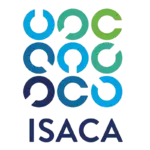In 1998, many revolutionary changes occurred in the study of information technology. That was when Cisco first offered entry-level professional networking certifications to learners worldwide. Since then, Cisco has expanded its certifications and currently provides a number of certificates for professionals of all experience levels, the most popular of which are the CCNA and CCNP certifications, which differ in;
Difference Between CCNA and CCNP
What is CCNA?
Cisco Certified Network Associate (CCNA) has become one of the most recognized entry-level networking certifications in the industry.
The CCNA certification is primarily intended for people who have limited experience (one to two years) in network engineering.
One of the main advantages of CCNA training is that CCNA certification is affordable.
The main goal of the Cisco CCNA certification is to provide solid associate-level training to enthusiasts and entry-level enthusiasts who already have some networking experience.
How is the training going?
Students interested in the CCNA program will need to first undergo testing and training in the installation, maintenance, troubleshooting, and troubleshooting of Cisco’s medium network equipment. Students in this program are also tested and trained in troubleshooting and installing end-to-end networks.-
What is CCNP?
CCNP is a certification available to IT professionals with at least one year of professional networking experience. A general secondary certificate or its equivalent is also mandatory to complete this certificate.
The CCNP certification curriculum consists of a large number of courses, which mainly cover the basics of IT networking.
CCNA and CCNP Course Duration:
The time required to complete Cisco courses usually varies, and in order to settle on an approximate number, an extensive survey had to be conducted among the learners, and one of these surveys received more than 6,470 responses about the duration of CCNA and CCNP courses, and the results were as follows:
| Course Name | Duration |
| CCNA | 3-5 Months |
| CCNP | 5 Months or More |
CCNA vs CCNP salary
- In the next table, we will compare the salaries of CCNA and CCNP, two of the most important certifications offered by CiscoIn the next table, we will compare the salaries of CCNA and CCNP, two of the most important certifications offered by Cisco;
| Course Name | Average Salary (USA) |
| CCNA | $75,000 Per year |
| CCNP | $102,000 Per year |
What Certifications Should I Pursue? CCNA vs Net?
The most obvious difference is that Network+ is vendor-neutral, whereas the CCNA is Cisco product specific. The fact that Network+ is vendor-neutral means that the material the course covers is more general than what you’ll find in Cisco CCNA courses (you should know that Cisco offers 2 ways to prepare for the CCNA exam, ICND1 + ICND2 or 1 CCNA exam).
It is noted that there are similarities in content between the two courses and there are some pivotal differences. For example, Network Fundamentals/Theory are in both courses.
TCP/IP addresses are also covered in both courses with little difference in content (with the small difference being that the Cisco course spends more time on subnetting and VLSM).
Can I take CCNP ENCOR 350-401 and CCNP SCOR 350-701 if I have CCNA R&S?
You should know that you can take ENCOR and SCOR certifications without any CCNA. They do not have prerequisites.
Now be aware that ENCOR and SCOR, although very important, will not give you a CCNP.
Devnet vs Cyberops what to get after CCNA?
Cyber Ops and DevNet are basically two different career paths, they can only be compared on a narrow scale. Both are good but only if candidates are interested in them. Hence, it highly depends on the candidates who want to advance their career in the field of Cyber Operations as well as the field of Software Development or DevOps Engineering and much more.
How to earn CCNA & CCNP certifications from the comfort of home?
You can set your training schedule for the Premium Cisco CCNA and CCNP package to fit any other commitments you may have. You will enjoy lifetime access to the content, and this will allow you to decide for yourself how long you want to complete the study. There are no deadlines, no study sessions, and no added pressure.
CCNA and CCNP Exam Requirements:
CCNA Requirments:
The CCNA exam is the core exam for Cisco certification pathways. This is why you do not need to obtain any prior certifications before you take the CCNA exam.
You should be aware that there are a few restrictions and prerequisites before attempting to take the exam. The first restriction is related to age:
- The applicant must be at least 13 years old, even with parental consent.
- People between the ages of 13 and 17 can take the test and obtain the certificate, subject to parental consent.
- People over 18 are eligible to take the test without age restrictions.
The second condition centers around the fact that the test center requires a digital photo and signature along with two types of personal identification, knowing that failure in either of these two points will be a hindrance to the candidate and will prevent him from taking the test.
Although Cisco does not impose any prerequisites of this kind, it makes sense to take the exam after at least one year of networking experience.
Studying, combined with practical work in a real environment, increases the chances of passing the exam.
CCNP Requirments:
In general, there are no formal CCNP prerequisites.
However, candidates for this important certification often have three to five years of experience implementing enterprise network solutions.
























